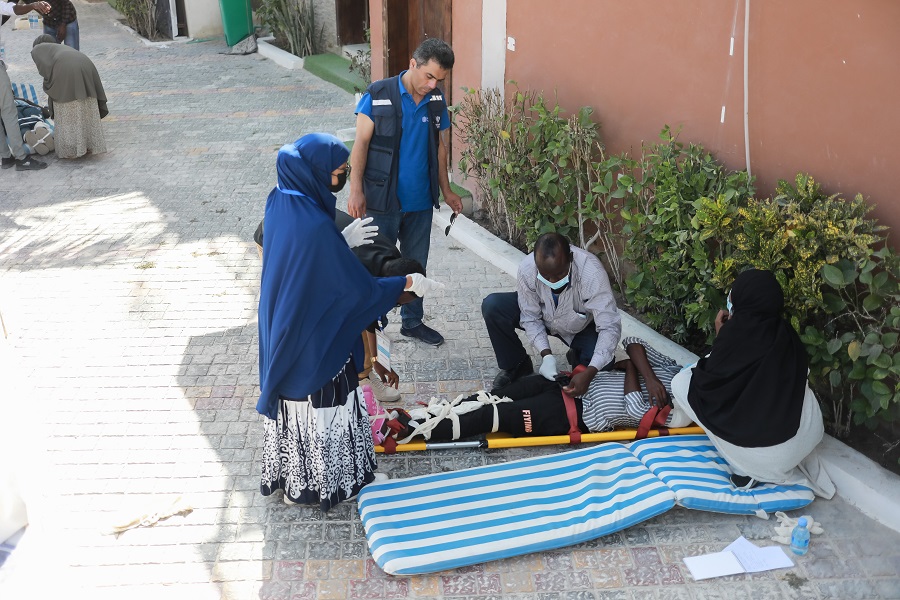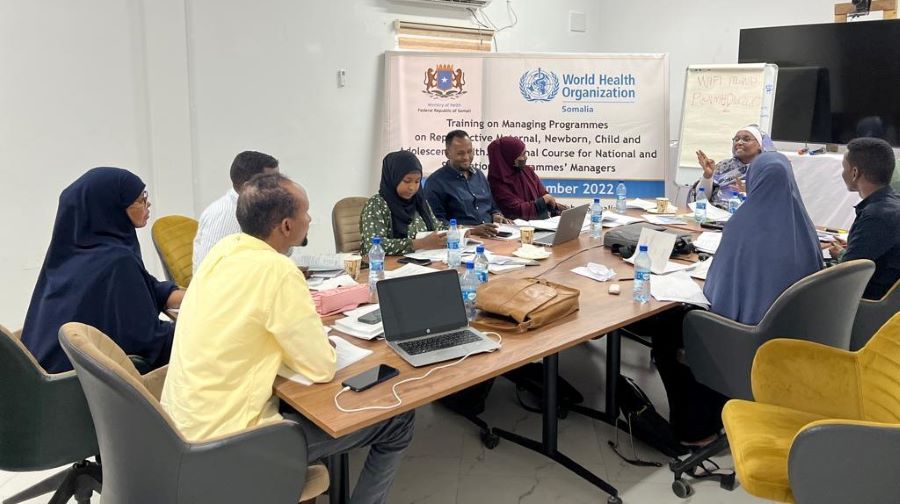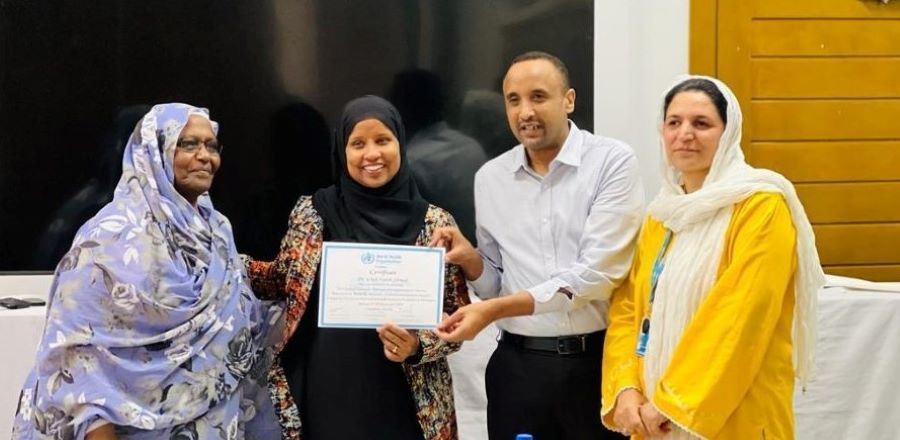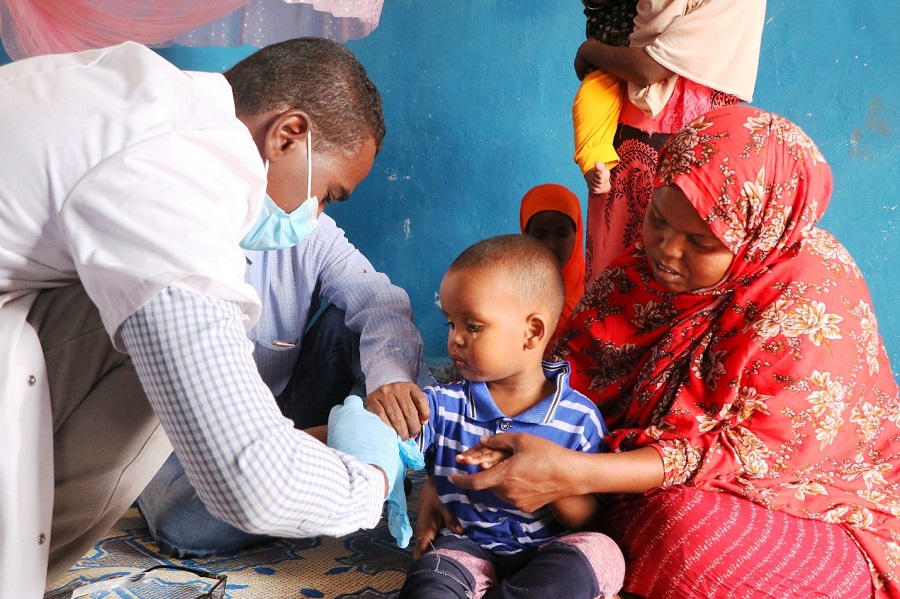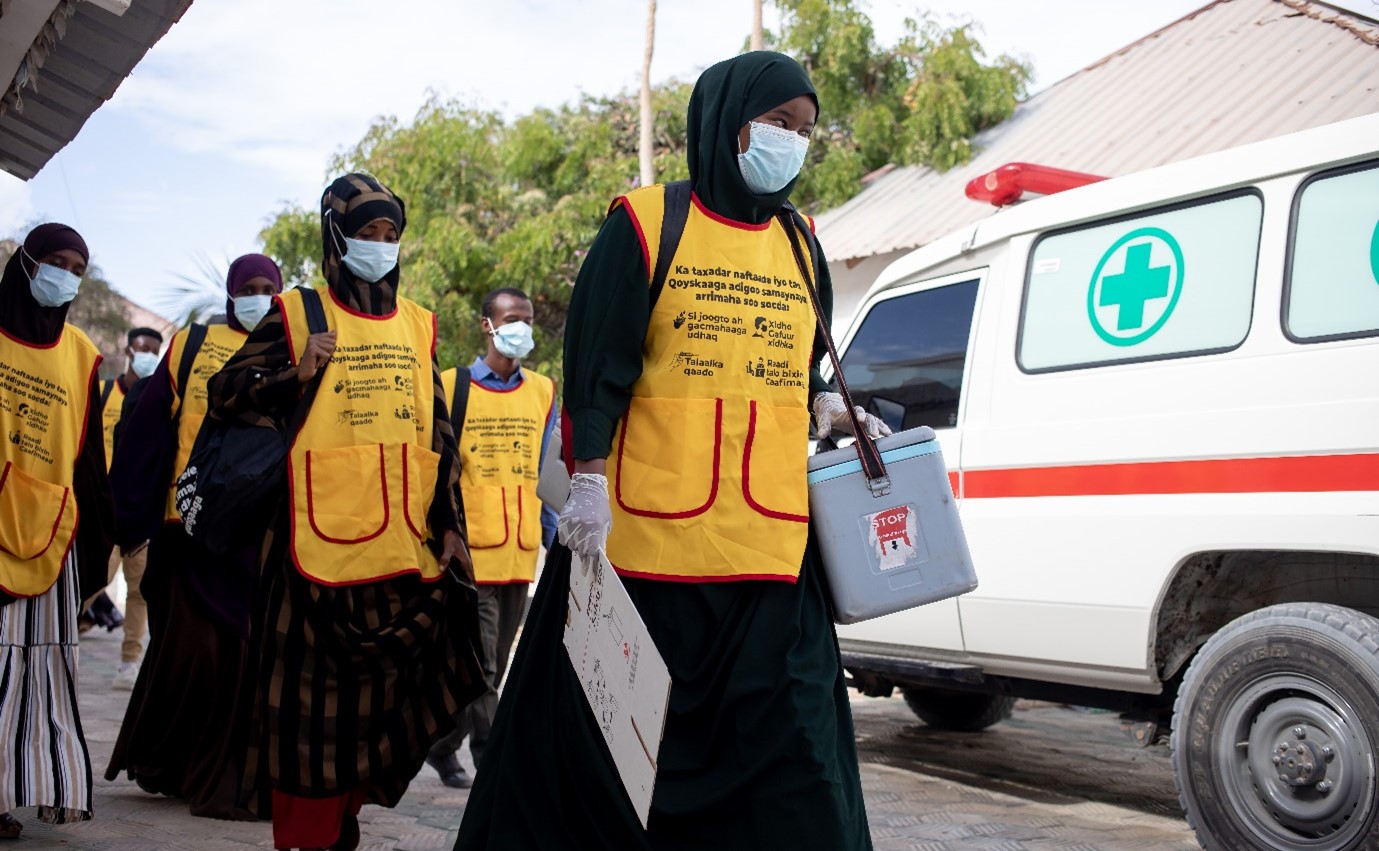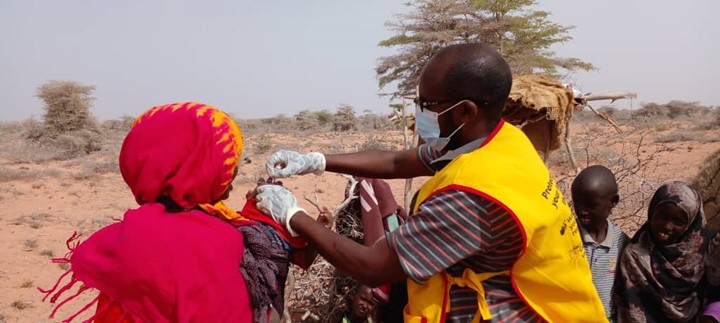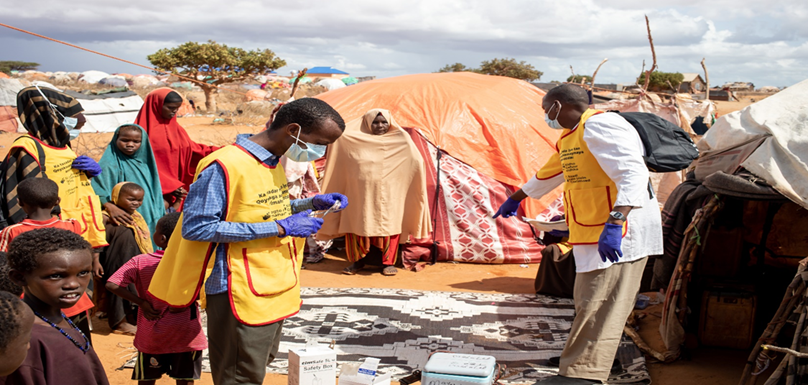MOGADISHU, 12 January 2023 – The World Health Organization (WHO) Country Office in Somalia, in collaboration with the Federal Ministry of Health, has initiated a capacity-building plan for first responders and hospital managers to strengthen critical trauma care services in the country with the aim of cutting down preventable mortalities within the “golden hour” in any mass causality event.
Following the deadly October 2022 twin-blasts, which left more than 100 people dead and another 300 injured, the WHO Country Office, in addition to providing medical care and supplies to the Federal Ministry of Health deployed a trauma operational and advisory team (TOpAT) from WHO Regional Office for the Eastern Mediterranean to conduct a rapid assessment of the capacities of public hospitals in managing trauma and mass casualty events. This initiative helped to review existing capabilities and capacities in the country to manage mass causality events, both at the scene of the event and at the hospital, and develop plans to reduce preventable mortalities and long-term disabilities from injuries and provide best life-saving interventions in case of any such future incident.
The observations from TOpAT followed by numerous consultations with the Federal Ministry of Health, helped the WHO country team to come up with the idea of developing a short- and long-term plan for building the capacities of both frontline health care workers, including drivers, nurses and paramedics working on ambulances or emergency wards of hospitals and simultaneously build the capacities of the directors and senior managers of hospitals to help them prepare emergency wards and staff of health facilities for managing any such events in a professional, cost-effective and ready-to-serve manner.
By mobilizing its internal resources, WHO, with the support of the Regional Office, designed a customized 4-day community first aid responders (CFAR) training. A list of 40, including 16 females, paramedics, drivers and nurses working with both public and private hospital ambulances across Mogadishu were selected for this session. This hands-on training was held in 2 batches of 20 participants each from 11 to 24 December 2022 in Mogadishu. It helped participants learn the basic skills of ABCDE (airway, breathing, circulation, disability and exposure). The training was imparted by WHO trauma care experts, both from the WHO Regional Office and country office.
“I have been running an ambulance for the past 4 years and have responded to many of the mass causality events in and around Mogadishu, but until now, no one told me about such important skills, which can save lives or at least prevent disabilities. I really want to thank WHO for providing me with this opportunity and would highly recommend this for all paramedics, drivers and staff of all public and private ambulances and emergency ward health professionals,” said Abdizakaria, who attended the first batch of the 4-day CFAR training in Mogadishu. Participants from the second batch echoed identical observations.
Subsequently, WHO arranged a 4-day (16–20 December 2022) mass casualty management (MCM) training for 22 hospital directors and managers, including 5 females, selected by the Federal Ministry of Health from 5 public hospitals: Madina from Mogadishu, Dhusamareb and Galkayo from Galmudug, and Hudur and Afgoye from South West State. This training, held in Mogadishu, focused on imparting knowledge and skills to these senior managers about planning, implementation, monitoring, and accountability of managing any mass causality event and preparing emergency wards and staff to handle any such event by following the established standard operating procedures (SOPs).
Both the CFAR and MCM training included simulation exercises conducted at the premises of the Madina hospital to help demonstrate the handling and management of the pre-, during and post-trauma events. WHO plans to cascade this CFAR and MCM training to other participating states. The Federal Ministry of Health has collected a list of 80 frontline staff from all states for CFAR training, which is scheduled to be rolled out and completed at the state level within the first quarter of 2023.
Director of Madina Hospital Dr Mohamed Abdirahman Jama while thanking WHO for undertaking this capacity-building initiative said that, “Trauma care and emergency ward management is perhaps one of the most neglected and least-funded areas in Somalia and I am glad that a very structured effort has been rolled out to help health managers learn the much needed professional skills that can help them to prepare hospitals and staff for managing any emergency and trauma situations.”
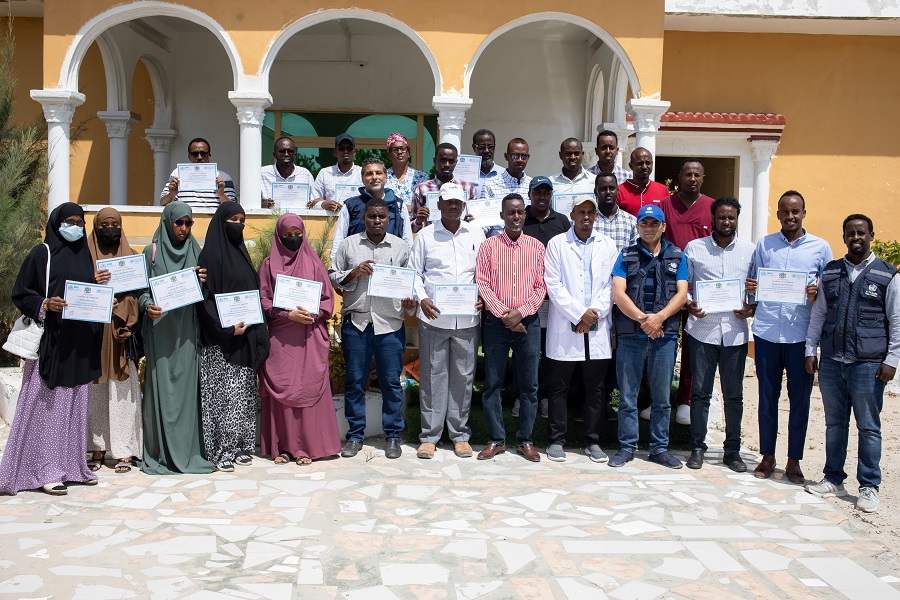 Group photo of participants at the conclusion of the 4-day mass casualty management training held in Mogadishu from 16 to 20 December 2022. Credit: WHO/Somalia
Group photo of participants at the conclusion of the 4-day mass casualty management training held in Mogadishu from 16 to 20 December 2022. Credit: WHO/Somalia
Addressing the concluding session of the MCM training, Chairman of the National Health Emergency Taskforce from the Federal Ministry of Health Dr Guled Abdijalil Ali expressed gratitude to WHO for wasting no time in responding to the requests of medical supplies from the Somali health ministry in the wake of deadly twin-blasts of October 2022. He recalled that within a week of the blasts WHO flew in almost 87 metric tonnes of medical supplies from its operational hub in Dubai for the Ministry. “It helped us save many precious lives and for sure we could not have done it without the support of WHO. We are hopeful that by designing and conducting both these CFAR and MCM training in record time and by helping the Ministry to roll them out to other states, we will have a cadre of health professionals and first responders capable of saving more lives and preventing disabilities than ever before.”
For additional information, please contact:
Kyle DeFreitas
External Relations Officer
هذا البريد محمى من المتطفلين. تحتاج إلى تشغيل الجافا سكريبت لمشاهدته.
Fouzia Bano
Communications Officer
هذا البريد محمى من المتطفلين. تحتاج إلى تشغيل الجافا سكريبت لمشاهدته.
Related links
Short video message by WHO Representative to express sympathy and solidarity with blast victims
Tweet by the Federal Minister of Health Dr Ali Haji thanking WHO for support





